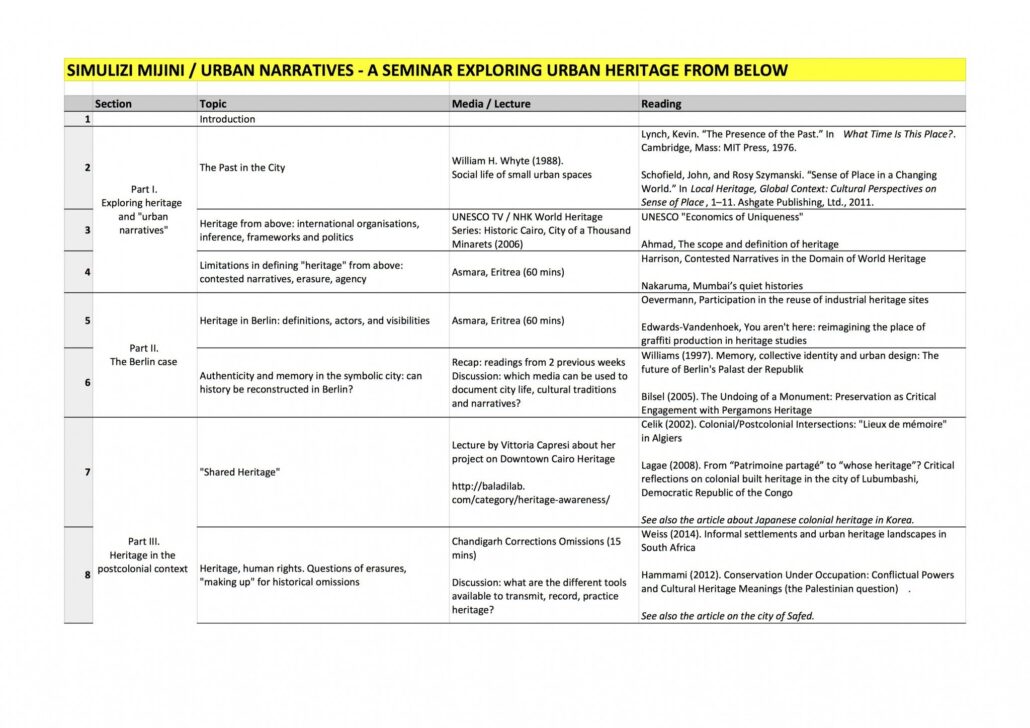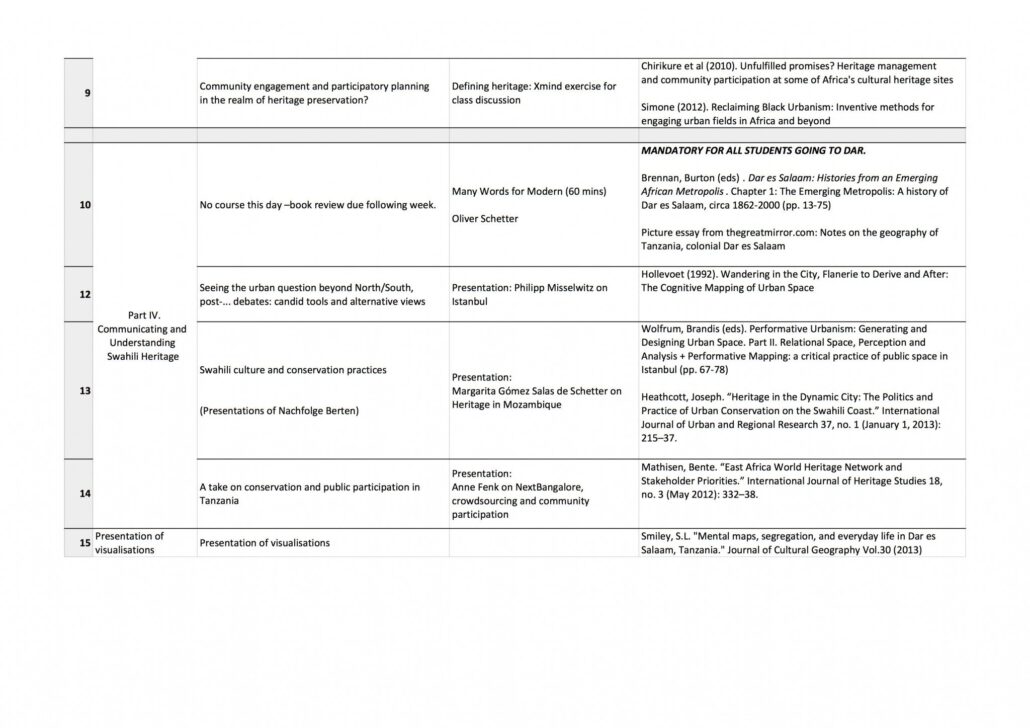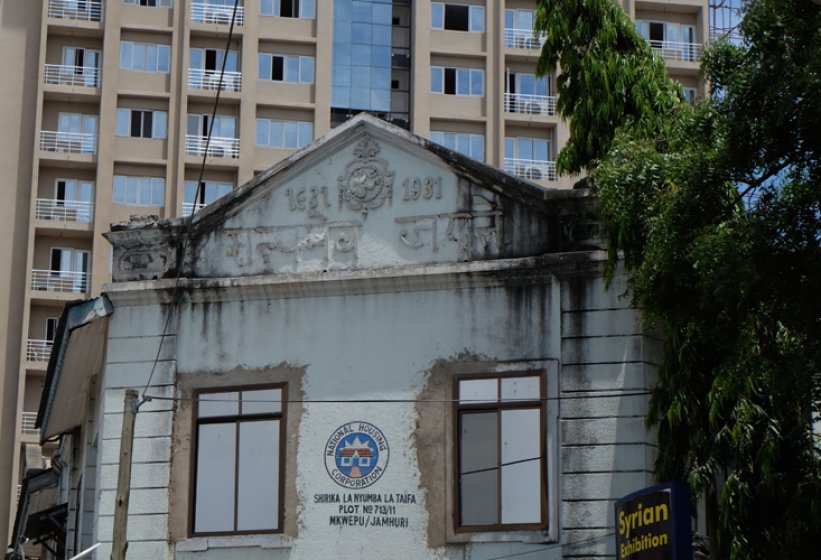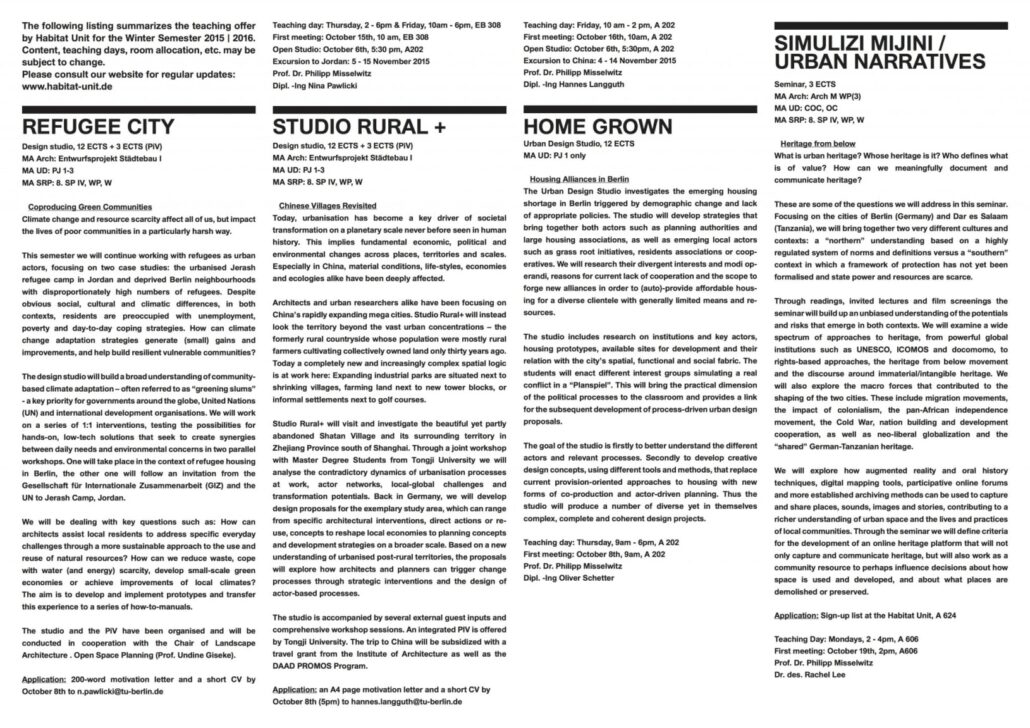Seminar taught at the Technical University Berlin, School IV, Department of Architecture – Winter Semester 2015-2016
Part of the research programme Heritage from Below at the Habitat Unit
Taught by Dr. Rachel Lee and Diane Barbé
URBAN HERITAGE FROM BELOW
What is urban heritage? Whose heritage is it? Who defines what is of value? How can we meaningfully document and communicate heritage?
These are some of the questions we will address in this seminar. Focusing on the cities of Berlin (Germany) and Dar es Salaam (Tanzania), we will bring together two very different cultures and contexts: a “northern” understanding based on a highly regulated system of norms and definitions versus a “southern” context in which a framework of protection has not yet been formalised and state power and resources are scarce.
Through readings, invited lectures and film screenings the seminar will build up an unbiased understanding of the potentials and risks that emerge in both contexts. We will examine a wide spectrum of approaches to heritage, from powerful global institutions such as UNESCO, ICOMOS and docomomo, to rights-based approaches, the heritage from below movement and the discourse around immaterial/intangible heritage. We will also explore the macro forces that contributed to the shaping of the two cities. These include migration movements, the impact of colonialism, the pan-African independence movement, the Cold War, nation building and development cooperation, as well as neo-liberal globalization and the “shared” German-Tanzanian heritage.
We will explore how augmented reality and oral history techniques, digital mapping tools, participative online forums and more established archiving methods can be used to capture and share places, sounds, images and stories, contributing to a richer understanding of urban space and the lives and practices of local communities. Through the seminar we will define criteria for the development of an online heritage platform that will not only capture and communicate heritage, but will also work as a community resource to perhaps influence decisions about how space is used and developed, and about what places are demolished or preserved.
Find below the syllabus:




